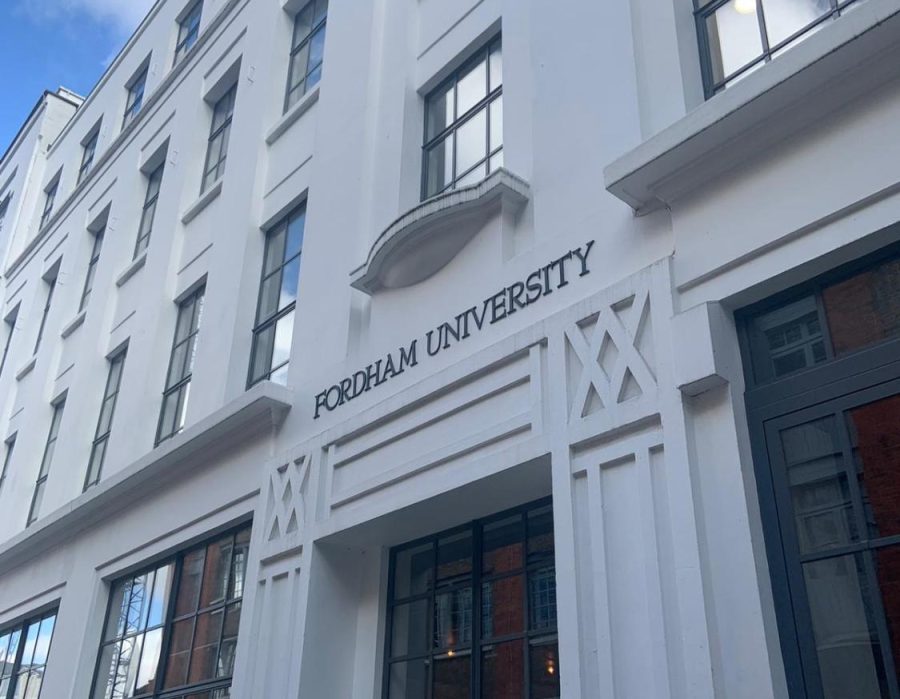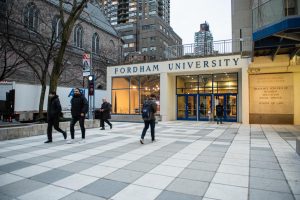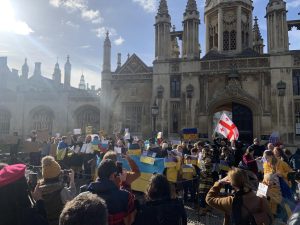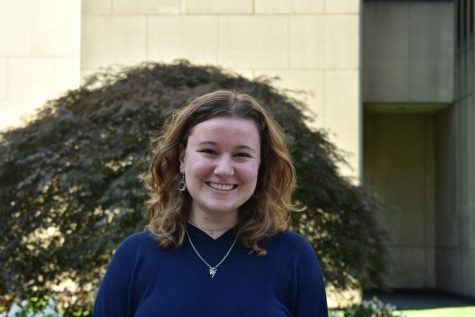University Resumes Sponsored International Travel
Students protested the restriction until Fordham announced its recent decision to repeal the policy in March
Students can now resume international travel to enhance the learning experience during their semesters abroad.
March 29, 2022
After two years of travel restrictions due to the pandemic, Fordham’s study abroad program lifted its ban on travel outside of a student’s host country on Feb. 28. Prior to the release of the university’s decision, students were eager to see the world and travel freely during their study abroad programs, leading some to petition against Fordham’s policy.
When a student chooses to study abroad, the university is able to conduct random passport checks to ensure that they have not left the country, according to Emma Bainbridge, Gabelli School of Business at Rose Hill ’23 and participant in the study abroad program at Fordham London Centre. If a student chose to leave the U.K. against Fordham’s previous policy and the university discovered this violation through the passport check, the student is then subjected to academic probations, which may include expulsion.
Bob Howe, assistant vice president for communications, said that the students who chose to study abroad in London were made aware of the travel restrictions and agreed to them as a condition for participating in the program.
Howe explained that being in a foreign country can make isolation and staying on top of classes harder for students if they contract COVID-19.
Howe explained that being in a foreign country can make isolation and staying on top of classes harder for students if they contract COVID-19. He noted that students who are abroad are unable to return home to quarantine, as some may do when at Fordham in the United States.
It is essential to avoid an increase in COVID-19 cases because some professors choose to take their classes out onto the streets of London, according to Howe. The structure of these classes would then have to be adapted for any students who are infected.
In addition to the structure of classes being altered, Howe noted that another reason the university restricted travel outside of the U.K. was because most other countries in Europe have a higher seven-day infection rate than the U.K. does.
Bainbridge also stated that she believed students should not be told what they can and cannot do in their free time.
“If a Fordham student were to travel to the continent and become infected, their ability to return to London could be impeded by travel protocols,” he said. “If they return to London infected but asymptomatic, they may unknowingly infect Fordham students upon their return.”
Prior to the restrictions being lifted, Bainbridge created a petition to help repeal the university’s travel ban. The petition collected 359 signatures from fellow students and parents who agreed with the petition’s goal.
“We have been taught that it is about educating the whole being but by banning our travel they are banning our education,” Bainbridge said about the restriction prior to its lifting. “We want to be able to see the historic monuments, museums, and culture around Europe.”
The policy changes made it so that university-sponsored travel was once again permitted for faculty, staff and students.
Bainbridge also stated that she believed students should not be told what they can and cannot do in their free time, since the restriction was from Fordham and not the U.K. The United Kingdom’s Parliament has no travel restrictions, mask mandates or isolation protocols.
In the email from Feb. 28 announcing the change to the travel policy, Dennis C. Jacobs, provost and senior vice president for academic affairs, and Marco Valera, vice president for administration and COVID-19 coordinator, explained that the university was able to revise its decision due to “evolving circumstances.”
The policy changes made it so that university-sponsored travel was once again permitted for faculty, staff and students. International travel is now allowed as long as it does not pose a threat to a student’s health, safety or security.
The changes made to the yearlong suspension on university-sponsored travel went into effect on March 12.
Although the suspension on international travel has been lifted, there are still rules in place regarding where members of the Fordham community can travel. Fordham based its policy on the State Department’s Travel Advisory for different countries. Countries that have been issued a level 1 or 2 travel advisory do not require additional approval besides the standard budgetary review. These countries have been granted the conditions of either “exercise normal precautions” or “exercise increased caution.”
Those who have received a level 3 or 4 travel advisory, however, have different requirements. A level 3 country receives the recommendation of “reconsider travel,” while individuals interested in a level four country are told “do not travel.” If an individual wants to travel to a level 3 or 4 country, they must first submit a travel request at least 10 days prior to their intended departure date. Fordham’s International Travel Risk Assessment Committee will then conduct an assessment and forward it to the individual’s dean or vice president for final approval.
The changes made to the yearlong suspension on university-sponsored travel went into effect on March 12. Individuals wanting to travel must be up to date on their COVID-19 vaccinations, including a booster dose if eligible. They must also be enrolled in both Fordham’s Travel Registry and the Department of State’s Smart Traveler Enrollment Program.














